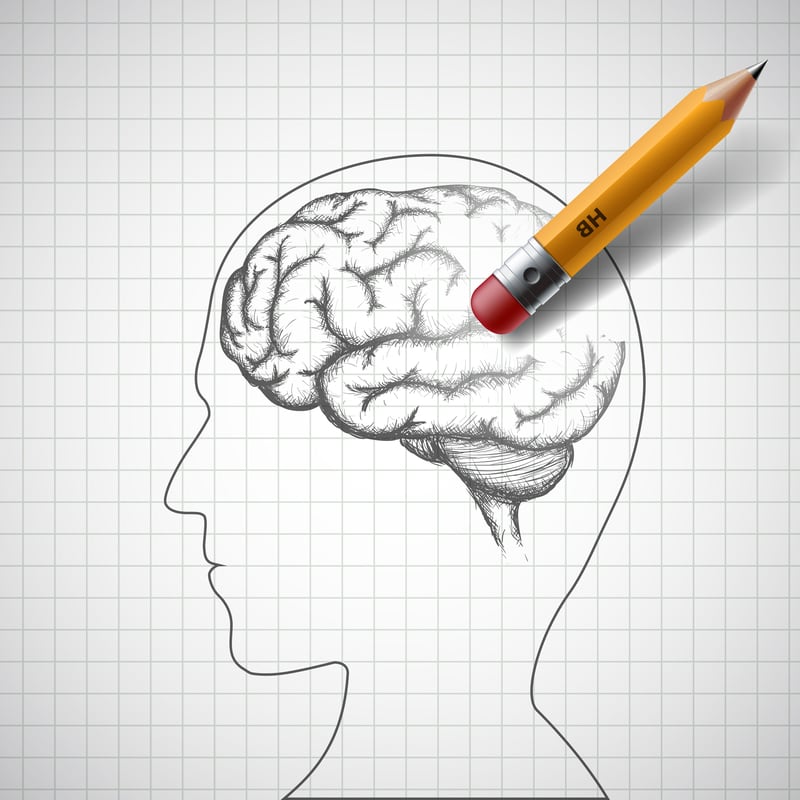Contents:
- Medical Video: Aphasia: The disorder that makes you lose your words - Susan Wortman-Jutt
- What is mild cognitive impairment?
- What are the symptoms and characteristics of mild cognitive impairment?
- What causes mild cognitive impairment?
- Will patients with mild cognitive impairment develop dementia or Alzheimer's?
- How to prevent and overcome mild cognitive impairment
Medical Video: Aphasia: The disorder that makes you lose your words - Susan Wortman-Jutt
Being forgetful is a natural thing in increasing age. But some people forget more easily than others, even though their age is still relatively young. This condition is probably a sign of mild cognitive impairment or better known as mild cognitive impairment (MCI).
What is mild cognitive impairment?
Mild cognitive impairment is a decrease in cognitive function found in a person, whose condition is more serious for individuals his age. This condition is related to brain nerve cells as organs that play a role in remembering and thinking, or a history of treatment that affects blood flow to the brain.
What are the symptoms and characteristics of mild cognitive impairment?
Because it is still relatively mild, this cognitive disorder does not significantly affect the activity or life of the sufferer. Symptoms of mild cognitive impairment that most often arise include often forgetting personal objects, forgetting appointments or schedules that are not routine, and having difficulty remembering someone's name. Some of these include symptoms of mild cognitive impairment.
Besides cognitive impairment can also be non-physical which affects thinking ability. So that someone who experiences it often has difficulty managing things, planning, or giving an assessment. Both memory disorders and thought disorders can occur simultaneously in the same person.
Because it has non-specific symptoms such as forgetfulness, the diagnosis of mild cognitive impairment is quite complex. Examinations to ascertain this disorder include medical history, family dementia history, mental health status, and psychiatric conditions to eliminate suspected mental health disorders with similar symptoms such as schizophrenia, depression or bipolar disorder.
What causes mild cognitive impairment?
The cause of mild cognitive impairment is thought to be due to damage to the part of the brain that is similar in dementia sufferers. As a result there have been several changes to:
- buildup of beta-amyloid plaques in the brain
- lack of blood flow to the brain
- some minor damage from a stroke
- shrinking certain parts of the brain
- swelling of the blood vessels of the brain due to fluid
- lack of glucose levels in the part of the brain responsible for thinking
Will patients with mild cognitive impairment develop dementia or Alzheimer's?
Mild cognitive impairment is not a symptom of dementia because the impact is not serious enough and the patient can still move on his own. Nonetheless, this disorder is considered the initial symptom of dementia and can develop into Alzheimer's which is one of the symptoms of dementia.
However, only 10-15% of patients with mild cognitive impairment end up with dementia. In some cases, damage to the brain can also be corrected with lifestyle changes. In addition, symptoms of mild cognitive impairments such as forgetfulness and having difficulty thinking can be triggered by stress factors.
The most important factor from the development of mild cognitive impairment to dementia is age. Plus, there are factors in the history of cardiovascular disease, obesity, and diabetes which increase the risk of dementia. Damage due to increased levels of amyloid protein in circulating cerebral fluid is also an important factor, but it will be difficult to recognize and provide a definitive answer to whether mild cognitive impairment can develop into dementia.
How to prevent and overcome mild cognitive impairment
Lifestyle changes are efforts that can prevent and inhibit the development of mild cognitive impairment. This is because damage to the brain can begin when a person is obese, or when there is a disruption in the heart in blood vessels that inhibits blood supply with brain oxygen. Efforts to maintain physical health in preventing cognitive decline can be done by:
- Routine physical activity
- Control blood pressure and blood sugar levels
- Quit smoking
- Implement a balanced nutritional pattern, especially by consuming sources of protein, vegetables and fruit
In addition to maintaining physical health, patients with mild cognitive impairment are also advised to take part in activities that stimulate cognitive abilities, such as being active in social activities, solving puzzles, and reading. But until now, the decline in cognitive abilities of the brain and dementia could not be treated with drug consumption. The combination of maintaining mental and physical health can improve cognitive abilities and prevent them from developing into dementia.












